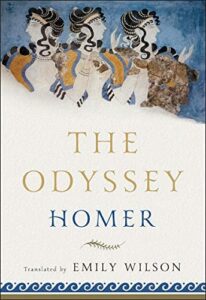If wise men remain quiet, while they are not injured, brave men abandon peace for war when they are injured, returning to an understanding on a favorable opportunity: in fact, they are neither intoxicated by their success in war, nor disposed to take an injury for the sake of the delightful tranquility of peace. Indeed, to falter for the sake of such delights is, if you remain inactive, the quickest way of losing the sweets of repose to which you cling; while to conceive extravagant pretensions from success in war is to forget how hollow is the confidence by which you are elated. (Book I, Chapter V)
Thucydides
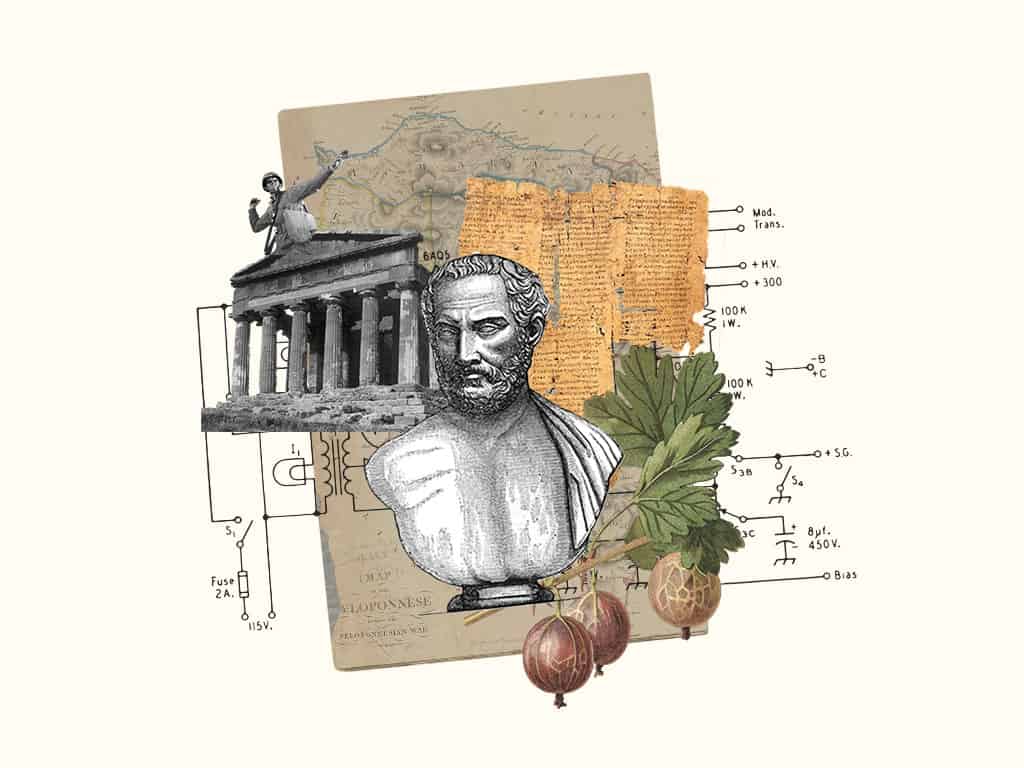
The History of the Peloponnesian War
Thucydides
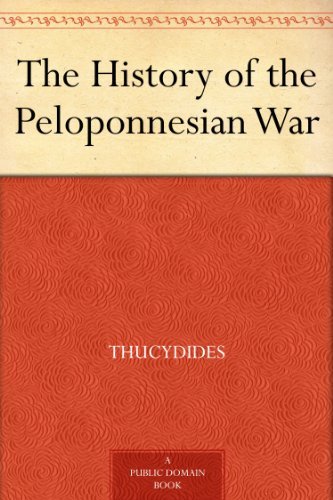
Thucydides, The History of the Peloponnesian War, Richard Crawley, translator
Thucydides sought out to write an accurate history of the Peloponnesian War.
As a result, he spends Book I outlining his methodology and how he accessed the sources he used. Thucydides used Book II to cover the strategies that Athens and Sparta used during the early stages of the war. While Athens sought to play to its strengths by relying on its navy, Sparta tried to encourage other city-states to revolt against Athens, inspiring them that their efforts would lead to a “free Greece.” Still, both sides struggled to get an advantage over the other, primarily due to the deadly “Plague of Athens.” The plague killed Athens’ Pericles, leading Thucydides to explore what might have happened had he survived. With Pericles gone, the new leadership in Athens decided to depart from his tactics. This ultimately led to the failed Sicilian expedition, which ended badly for the Athenians. By this point in the war, the tide had turned, and Sparta took the fight to Athens. Here, Persian involvement began to emerge on the side of the Spartans. Thucydides, however, did not live to see the Athenians defeated, though he spent the final pages of The History of the Peloponnesian War outlining why they would ultimately lose.
Why This Text is Transformative?
Thucydides’s The History of the Peloponnesian War represented a change in how historical narratives were written.
Thucydides’s The History of the Peloponnesian War represented a change in how historical narratives were written. While previous historical works by people like Herodotus tended to at times depart from the facts or used literary novelties, Thucydides communicated his intention to write an accurate account. He outlines how he acquired the information he used in writing his history. As such, present-day historians have praised the methodology Thucydides used in writing The History of the Peloponnesian War. The idea that one must have and use evidence in reconstructing the past, though, to be sure, Thucydides had his own interpretations and opinions. Furthermore, The History of the Peloponnesian War is vital in pointing out the importance good leadership in the maintenance of democracy. Lastly, The History of the Peloponnesian War covers the relationships that exist between different city-states, which has evolved today to represent the relationship that exists between nations. Some historians see Thucydides as providing the foundation for realpolitik which became prominent in the nineteenth century; moreover, The History of the Peloponnesian War served to educate policymakers as they dealt with ideological conflicts on an international stage, whether the Cold War or the United States’ relationship with China.
A Focused Selection
Study Questions
Book I
A portion of one 75-minute class session can be dedicated to Book I:
1) How does Thucydides intend to present the history of the Peloponnesian War? Based on what was read in Book I, how is Thucydides’s approach different from the historical accounts that preceded his? How has Thucydides’s approach shaped present-day historians?
2) What are the benefits to Thucydides’s approach? Are there any problems? Why or why not?
Book II
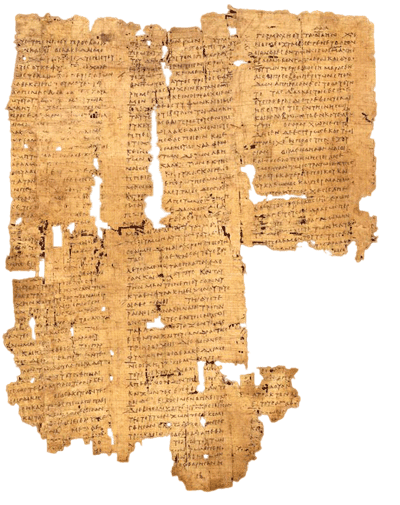
A portion of one 75-minute class session and one 75-minute class session can be dedicated to Book II:
1) What attitudes do the Athenians have towards government, war, liberty, and poverty? How do these attitudes differ from those of the Spartans? Do you believe there was any way in which a war between Athens and Sparta could have been avoided?
2) Based on Pericles’s “Funeral Oration,” what does citizenship mean? How does Pericles’s view compare or contrast with the Spartan view of citizenship?
3) What were Thucydides’s views of Pericles? Did Thucydides’s views change over the course of Book II? If so, how? What impact does leadership play in shaping the direction of the Peloponnesian War?
4) How did the “Plague of Athens” impact the war effort during the early stages of the Peloponnesian War? How did this plague impact war planning as well as they physical and psychological toll on both sides?
Building Bridges
From a historical perspective, The History of the Peloponnesian War works well with Homer’s The Iliad and Odyssey, as they outline the interactions that exist between the different forms of individualism that defined ancient Greece. For example, in reading The Iliad and Odyssey, one can see the importance individualism played in developing ancient Greece. Achilles represented the individual who questioned authority, who believed he counted more than his community. On the other hand, Hector represented the individual who gave to the state. Lastly, Odysseus reflects the individual who uses brains over brawn. These three characters were influential in the development and growth of ancient Greece, as Achilles represented Athens; Hector represented Sparta, and Odysseus represented Macedonia. Major differences emerged between the Achilles and Hector individuals, and these differences played out in the relationship that played out between Athens and Sparta. The History of the Peloponnesian War can be paired with the Aeneid, as both works examine the role of leadership in the growth and development of societies. Both works converse with each other on different types of leadership and the impact it has, both positive and negative, on a given community.
Supplemental Resources
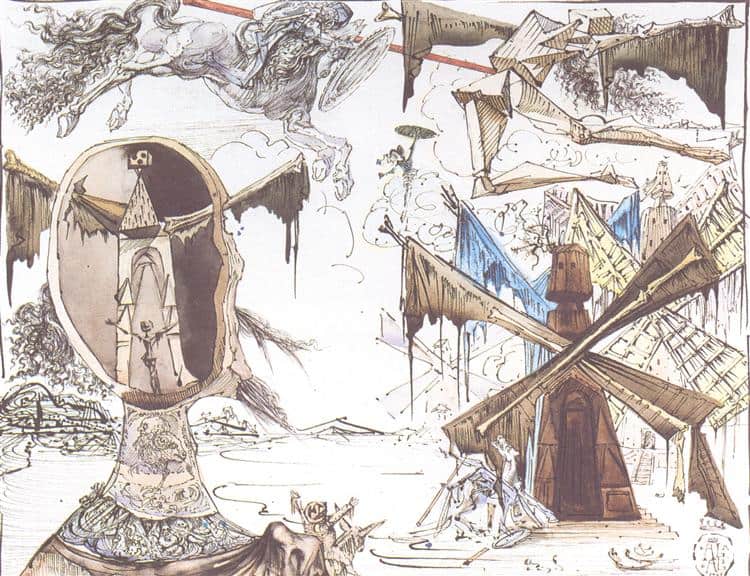
Don Quixote and the Windmills, 1945 - Salvador Dali - WikiArt.org
Don Quixote has been an inspiration for many visual artists. Spanish surrealist Salvador Dali returned to the novel multiple times throughout his long career, creating sketches, paintings, and sculptures of Don Quixote and Sancho, depicting important episodes in the book. A pairing of an episode with one of Dali’s works can lead to a stimulating discussion.
What details do students notice? What do his artistic choices suggest about his interpretation of the characters? To the extent that students are familiar with the story of Don Quixote, it is likely to be as it is filtered through the musical The Man of La Mancha. The musical has its own merits, and is framed by the interesting device of placing Cervantes on stage as a narrator, but of course it is impossible for it to capture much of the complexity of the book – and it alters the ending dramatically. Students may find it interesting to compare the two endings.
Text Mapping
Discipline Mapping
Political Science/Government
History
Philosophy & Religion
Page Contributor


